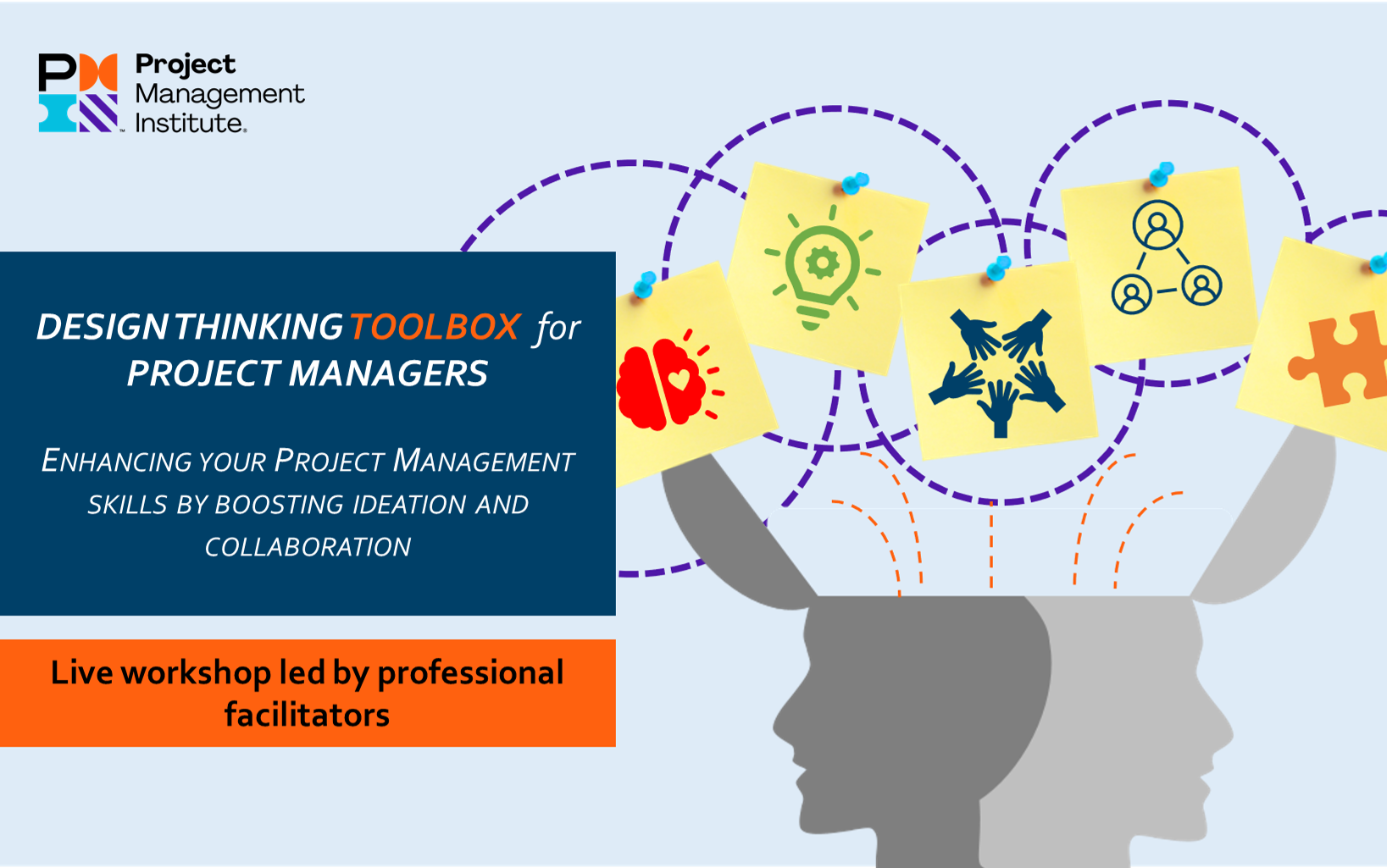Author: Ganesh Goplan, PMP
Marc is a Consulting Partner with PwC Switzerland, leading the Program & Project Portfolio Management and Core Platform Transformation Practice at PwC Switzerland. He has more than 20 years of experience in advising multinational firms on technology and business transformational challenges. Marc is driving AI initiatives for project management and has been advocating and speaking on the use of AI in project management for a couple of years.
When the entire world is moving towards AI, why do you think it could be a failure in Project Management?
We don’t believe it is a failure but looking at a short to medium timeframe, it doesn’t live up to the hype. Just a couple of years ago AI was praised as the new technology changing the world by storm, yet it is mostly applied in very specific use cases with close boundaries, like playing a game of GO or detecting cancer with a higher probability.
In these use cases there was enough data in the needed quality available for the AI to learn from. In project management, a lot of the data is in a form that sufficiently supports the project teams, but is hard to read for a machine (hand written notes, meetings, flip charts etc.). Therefore it cannot yet deliver on what we were promised years ago. As an assistant to project managers AI can bring in value, just not as the hype made us all believe it would.
What are the kinds of automation we would see in the field of Project Management?
The first phase of evolution of AI in project management is within integration and automation on standardized project tasks like budget updates based on a dataset that is integrated into a forecast report or auto scheduling of meetings.
A second phase could be chatbot assistance, taking over a bigger role in human-computer interaction, like organizing meetings, plan vs progress checks and sending out reminders. We also see minutes as something an AI chatbot could help with, and that rather sooner than later.
In a third phase, AI in project management introduces machine learning into project management practice. In the near future, AI could convert mind maps created by project professionals into a semantic network and derive tasks and their relationships from it. For instance, AI-based project scheduling could include lessons learned from previous projects and suggest multiple possible schedules based on the context and dependencies. An AI system could even alert the project manager to potential risks and opportunities by using real-time project data analysis.
As the last phase, similar to self-driving cars, autonomous project management would only need limited input and intervention from a human project manager. Besides technical project management processes – which are what the previous three phases primarily focus on – an autonomous project management system will additionally need to comprehensively consider and master the project environment and related stakeholders. These AI systems would therefore have to be able to apply sentimental analysis algorithms to crawl through customer communications and understand stakeholder satisfaction and commitment at any given point in time.
So, how do you foresee the future roadmap for Project Managers? Do they really need to scale up on AI, NLP etc.?
As AI will start to be more and more introduced into the world of project management, its success will also be dependent on the ease of use. We believe that you need to have an understanding about the technologies you are using. The project managers who succeed with AI will likely be those who manage to see beyond the bounds of ‘human’ imagination, and answer questions about how this technology can add real value and drive positive change in project management and business transformations. This will ensure the strategic value of project management.
Project Managers are needed for the risk taking factors and sensible judgment (humanness), at times, take decisions that do not conform to rational logic. Could AI fail in these areas?
It depends on the definition of failure, most likely the AI would take or propose different decisions – but this again depends heavily on the available training data for the AI. If such decisions were introduced in past projects and have worked out to great success, then the AI might emulate such a decision or recommend similar action because it has learned that this is successful. AI will undoubtedly change how projects are delivered and how project management as a practice will evolve. In the midst of this evolution it is important to remember that there is something AI cannot do – be human. This means that project managers will also stay relevant in the age of AI if they focus on the core skills of project management and progressively move into work that emphasizes human skills. This includes: Leadership, People and stakeholder management, Communication (verbal & non-verbal), Storytelling, Empathy, Emotional intelligence, Negotiation. In summary, we believe that AI will assist, not replace, project managers, the big decisions will therefore be data assisted, but never autonomously taken by a computer.
Where would Organization invest - best PMs or AI implementation? How is the cost factor leveraged from the Organization's perspective?
A new generation of data engineers is entering the job market and looking for possibilities in the business world. An investment early on into these specialists will help companies to get an edge on how to store, manage and use project management data in a way that is preparing them for the future with AI assisted project management. The more mature AI technologies will become, the better will early adopters find ways to leverage their knowledge and skills on the new possibilities the technology brings. In our view the investment should be first into the people, then into the data collection and afterwards into technology, starting with proven methods like document scanning, on which you can build up on.
Digressing a bit from the topic:) - What is the ground reality? - Do certifications such as PMP, Agile, Six Sigma Lean etc., still hold a weightage in the recruitment process?
Project Management Certifications are still and will remain relevant in the future in the recruitment process. However, the real value of these certifications is only there, when combined with experience gained out of real-life project experience, which – as we all know – is a prerequisite for the PMI-PMP certification. Furthermore additional certifications in new digital technologies, industry knowledge as well as innovation, creativity, empathy and leadership capabilities would be beneficial for a career in project management.
Say, around 5-8 years from now, would the Project Management Office exist? What would happen to Project Management methodologies of today?
Our prediction is that project management offices will still exist over the next 20 years at least. As AI will in the near to mid future only assist the PMO, their tasks will shift and what is manual work today, will be partly automated. PMO will shift its focus from information gathering, monitoring and distributing to a more data driven environment with capabilities in data analysis and prediction of the project progress, as well as risk management and mitigation.
As a final question, could you please share your valuable advice on the latest skills needed for a Project Manager to stay "in-tune" with the Organizations' strategy?
As said before, basic skills and real life experience in project management will be the foundation of today’s and future Project Managers. That will remain! However to stay “in-tune” with the Organization’s strategy no matter what the future holds, I believe there are some universal ingredients you need to explore, adapt and apply to stay relevant:
- Make decisions based on purpose and value: Build a future-looking understanding of how project managers and new digital technologies might collaborate to deliver your corporate purpose. Furthermore, create an open and transparent narrative on how you are influencing, planning and delivering on the future of the project management work – individually and for your organization.
- Embrace technology as a force for good: Clarify how digital technologies can enable the redesign of your project management work, enhance productivity and customer experience, and enable a focus on more value-added tasks. Additionally, use sophisticated planning and predictive analytics tool to increase accuracy in your project plans and resource allocations in each of the four worlds you may be in.
- Focus on the humans and the humane: Understand the skills you have in your project teams now (not just the roles your team members currently perform) and the gaps to the skills you will need in the future. Think beyond simplistic concepts like ‘we need more soft skills in our project’. Strengthen innovation, creativity, empathy and leadership capabilities in your project alongside critical technology skills.





